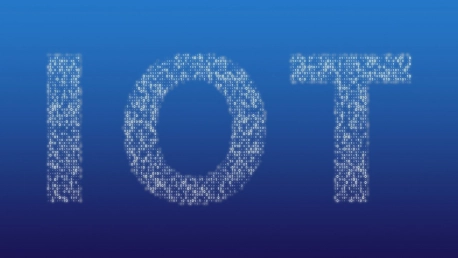The hospitality industry, ever at the forefront of customer experience innovation, now stands on the cusp of a new era marked by the advent of the Internet of Things (IoT). As hotels globally wrestle with post-pandemic expectations and an ever-increasing need for efficiency, personalization, and sustainability, IoT surfaces not merely as a beneficial tool but as a foundational revolution in guest service delivery. With the capability to connect a myriad of devices and systems, IoT technology is redefining what convenience, comfort, and control mean in the context of a hotel stay. By embedding intelligence into the very fabric of hotel operations, IoT is carving out a future where each guest’s experience is bespoke, every operational need is anticipated, and efficiency gains translate into tangible business outcomes.In exploring the multifaceted impact of IoT on the hospitality sector, we must examine how automation, service personalization, operational efficiency, safety, data analytics, digital twin technologies, cloud-based property management systems, 24/7 guest services, robotics, and the intricate texture of IoT infrastructure collectively shape this transformative journey. Each component reflects a strategic puzzle piece in aligning with contemporary guest expectations while fostering an environment of innovation and excellence for hotel operators.
The Rise of Automation and Personalized Service
In an industry historically dependent on the personal touch, automation might seem antithetical. Yet, IoT-enabled automation serves as an extension of this ethos, streamlining tasks to free up staff for more meaningful interactions with guests. For instance, self-check-in kiosks empowered by IoT reduce queues and wait times, a straightforward yet substantial enhancement to guest satisfaction. Smart room keys, meanwhile, minimize traditional check-in formalities and bolster security, giving guests a sense of immediacy and personal space as soon as they set foot on the property.The personalization of guest experiences via IoT stretches beyond mere convenience. It manifests in environments that adapt to the presence of the guest—a room that ‘knows’ the right ambient temperature or the perfect lighting hue, based on preferences indicated in their profile. This seamless blending of technology and tailored service creates a distinctive value proposition that places the guest’s comfort at the center of the hotel experience.
Enhancing Operations with IoT Efficiency
IoT’s role in hotel operations extends into the realm of efficiency and sustainability, aspects increasingly pivotal to brand reputation and financial viability. Predictive maintenance emerges as a standout application, with smart sensors detecting equipment anomalies before they escalate into noticeable issues, minimizing downtime and repair costs. Additionally, IoT-driven resource allocation optimizes the use of energy and water, aligning with global sustainability efforts and reducing operational expenses.Housekeeping and maintenance workflows are also experiencing a digital overhaul. Sensors can indicate real-time room occupancy, allowing staff to prioritize cleaning schedules, reducing disturbances, and elevating room readiness for new guests. These operational enhancements speak to a central theme in IoT adoption—doing more with less, without compromising on service quality.
IoT Bolstering Safety and Security Measures
IoT technology is instrumental in augmenting hotel safety and security, a facet of hospitality that remains non-negotiable for discerning guests. Enhanced surveillance systems bolstered by intelligent video analytics ensure vigilant monitoring of public areas, simultaneously respecting guest privacy. Advanced access control systems using IoT can customize entry permissions, providing additional layers of security and personalized access to certain hotel zones.In the case of emergencies, IoT comes to the fore with its capability for immediate detection and alert dissemination. Whether it’s smoke detection, water leak alarms, or other hazard sensors, IoT empowers hotel management with rapid response tools, protecting guests, staff, and property from unforeseen incidents and delivering peace of mind as part of the hotel experience.
Data-Driven Hospitality with IoT
The integration of IoT in hospitality goes beyond physical enhancements, delving into the vast potential of data analytics. IoT’s ability to capture and analyze myriad data points from guest interactions enables hotels to fine-tune services with an accuracy previously unattainable. Analyzing trends in guest behaviors and preferences guides strategic marketing initiatives and the developmental trajectory of services and amenities, creating a virtuous cycle of improvement and guest satisfaction.Inventory management systems have similarly been revolutionized by IoT. Sensors in in-room minibars, for instance, provide real-time insights into consumption patterns, automate restocking processes, and prevent potential stock depletion—a small but significant detail in curating an uninterrupted guest experience.
Digital Twins: The Future of Hotel Management
The concept of digital twins stands at the vanguard of hotel property management innovation. By mirroring physical assets in a virtual environment, digital twins allow for thorough analysis, simulation, and optimization of space and resource usage. Such technology aids in preventative maintenance scheduling and load balancing of hotel utilities, promoting cost efficiency and the longevity of hotel infrastructure.Digital twins also offer a platform for ‘what-if’ scenario testing without real-world risks, ensuring that hotel management can make informed decisions regarding resource distribution, disaster response drills, and future property expansions. This marriage of the virtual and the tangible encapsulates the forward-thinking nature of IoT applications within the hotel industry.
Property Management Systems (PMS) Integrated with IoT
The integration of IoT into Property Management Systems (PMS) has revolutionized hotel management, transitioning these systems into cloud-based centers that merge various hotel functions, from reservations to guest services. This technological evolution eradicates previous compartmentalization within hotel operations, forging a seamless and flexible system that responds in real-time to an array of stimuli, such as guest behavior or external environmental conditions.Hoteliers now enjoy a comprehensive overview of their premises, with the capability to make quick, informed decisions based on a wealth of data. The modern PMS is a living network that instantly adapts to shifting requirements, assuring a superior experience for guests while streamlining the management process. With continuous updates and intelligent automation, these systems anticipate needs, aligning hotel services with guest expectations and operational efficiency. The technology not only simplifies administrative tasks but also opens the door to an unprecedented level of personalization in the hospitality industry.
Secure and Convenient 24/7 Guest Services via IoT
One of the pressing demands in hospitality is the provision of unceasing, accessible services. IoT empowers hotels to meet this demand, delivering 24/7 accessibility to amenities and assistance without necessitating a parallel increase in staff numbers. IoT devices and systems ensure that guests receive attentive service at any time, crucially, with enhanced security and privacy.Voice-controlled rooms, facilitated by IoT technologies, are emblematic of this transition toward unrestricted servitude. Whether adjusting environmental settings, ordering room service, or seeking local recommendations, the IoT interface translates voice commands into actions, exemplifying a new paradigm of guest autonomy and convenience.
The Role of Robots in Enhancing Guest Experience
Robots are stepping into the world of hospitality, taking roles beyond gimmicks to enhance guests’ stays meaningfully. These automated attendants deliver not only room service but also provide helpful information and conduct exercise classes, representing an evolution in efficient and interactive guest services. As such technologies gain footing, innovative lodging establishments could see these non-human helpers become pillars of their service repertoire.However, successfully meshing robotic capabilities with hotel operations presents its own set of complexities. The subtleties of guest-robot engagement and the seamless fusion of tech ecosystems into existing hotel infrastructures are crucial areas that require skillful attention. Triumph in these areas allows robots to charm occupants with their uniqueness, while signaling a hotel’s forward-thinking approach to hospitality. Their presence could mark a transformative period where guest experience sees a significant shift, leveraging technological advances to address the changing needs and expectations of travelers.
Building the IoT Infrastructure in Hotels
The successful integration of IoT within hotels hinges on a robust infrastructure. Key components such as high-fidelity sensors, responsive actuators, reliable communication channels, and intuitive user interfaces come together to form the connective tissue of IoT ecosystems. Realizing this infrastructure is a multidisciplinary endeavor, demanding meticulous planning and a user-centric approach.Developing an IoT foundation within a hotel translates to a rigorous assessment of needs, pinpointing the correct technological fits, and ensuring system scalability. It is a process that pays homage to both immediate requirements and anticipates future demands, encapsulating the transformative journey hotels undertake in successfully adapting IoT.
The Choice of IoT Solutions: Off-the-Shelf or Custom?
Hotels at the crossroads of IoT solution implementation face a strategic decision: adopt ready-made, off-the-shelf products or invest in custom solutions tailor-made for their unique operations. While pre-built options may offer quick deployment, custom solutions promise a scale of personalization and flexibility conducive to a distinctive brand experience.Opting for tailored IoT infrastructures equips hotels with a competitive edge. It allows for a refined guest experience that can adapt to evolving trends and preferences, fostering an environment of continual improvement and guest-centric innovation. The path of custom IoT integration, though demanding in foresight and resource allocation, is one that aligns with a vision for a distinctly modern, responsive, and memorable hotel experience.









